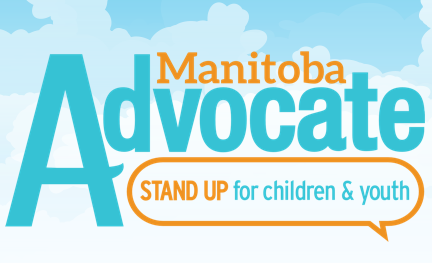CFS
Access To CFS File
Right to CFS File
Section 76(4) in the CFS Act gives you the right to access information in your CFS file once you turn 18 years old. However, there are several steps that you might need to take in order to access your file or a summary version of your file.
Each person you ask is required by law to respond back to you, in writing, that they received your request, what their decision is, and why.
How to Access your CFS File
We strongly recommend that you communicate through email or registered mail so you have a record of your attempts.
You have a right to know the contact information of people who work for CFS that can assist you in getting your file.
If you are ever denied the contact information for anyone on this list below, contact the Manitoba Advocate for Children and Youth or VOICES: Manitoba’s Youth in Care Network.
Steps Required to Access Your CFS File
- Email your CFS worker and tell them you would like access to your CFS file and the reason why. If you are told no, contact the office again and ask to speak to your social workers’ supervisor (step 2).
- You have the right to contact your social worker’s supervisor and tell them that you would like to access your CFS file, the name of your worker, the date you contacted them, their response, and the reason why you have elevated it to the supervisor. You can get the contact information for the supervisor by calling your CFS worker’s office and asking for it.
- If the supervisor doesn’t respond or says no, you have the right to contact the person at the agency who oversees the CFS supervisor. The person who supervises the supervisor is called the director or executive director of the agency. In the same way as before, when you email them state the following:
-
- Your worker’s name, when you contacted them, what you asked for, and their response.
- Then the supervisor’s name, when you contacted them, what you asked for, and their response.
- If the director or executive director does not reply or says no, then you can contact the CEO of your CFS Authority. Find out more about what Authority your care is under and who the CEOs are. When you contact the CEO, make sure you include the following information:
-
- What your worker’s name is, when you contacted them, what you asked for, and their response?
- The supervisor’s name, when you contacted them, what you asked for, and their response.
- The director or executive director’s name, what you asked for, and their response.
If the CEO does not respond or denies you access, then you can contact the Deputy Director of CFS and ask for access to your file. When you contact the Deputy Director of CFS, you will need to provide the following information:
-
- Your worker’s name, when you contacted them, what you asked for, and their response.
- The supervisor’s name, when you contacted them, what you asked for, and their response.
- The director or executive director’s name, when you contacted them, what you asked for, and their response.
- The CEO’s name, when you contacted them, what you asked for, and their response.
The Deputy Director of CFS is the last person you can ask before you will need to get a lawyer to ask a judge to release your information.
It’s important to know that you might not get all the information you are looking for in your file, but there are very specific reasons for information to be redacted (blanked out). This includes:
-
- Any part of your file that provides information about another person, who does not work for agencies, organizations and individuals who provide services that are government funded. For example, if someone reported your family to CFS, then their information will be removed, but if a foster parent or worker writes something and it’s in your file, then you should be able to see who wrote it.
- Any information that could put the safety of someone else at risk. For example, if your child is in CFS care due to safety concerns, when you access your file there could be information about why your child has been removed, but they would redact any information about where they are living, who their caregivers are and what school they are attending.
- You do not have a right to your entire file, and it’s up to each agency and authority to decide if you will receive your file or a summary version and whether they will review it with you or provide you with the documents. Whatever decision is made, you have a right to know why and in writing.
For support in advocating or writing CFS file requests, contact the Manitoba Advocate for Children and Youth or VOICES: Manitoba’s Youth in Care Network.
Looking for Help?

Contact Info
Winnipeg:
(204) 988-7440
Thompson:
(204) 677-7270
Toll-Free:
1-800-263-7146
Email: info@manitobaadvocate.ca

Contact
Phone: 204.982.4956 or
Toll-Free: 1.866.982.4956
Email: info@voices.mb.ca










